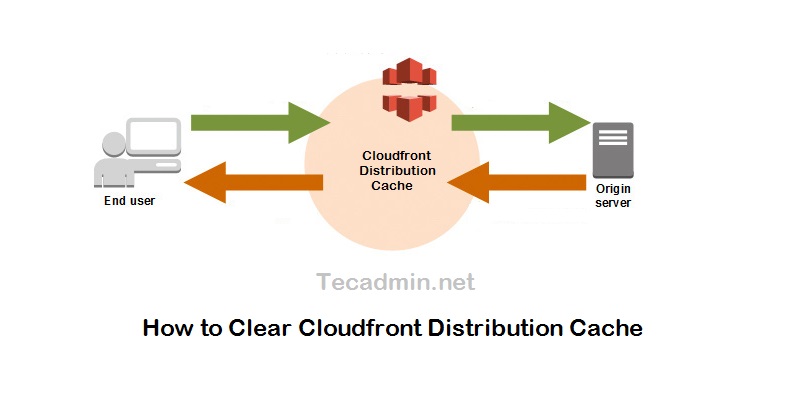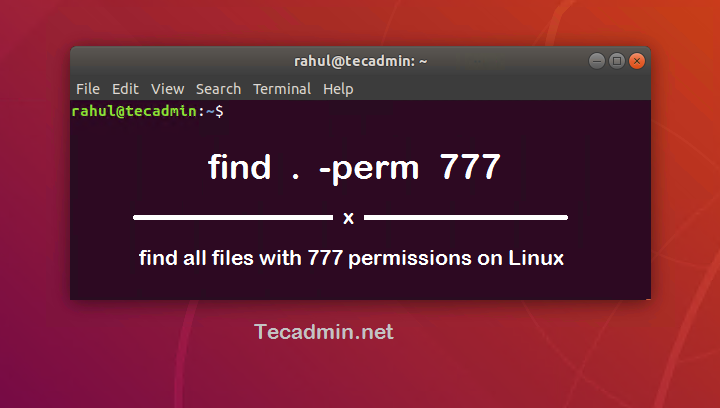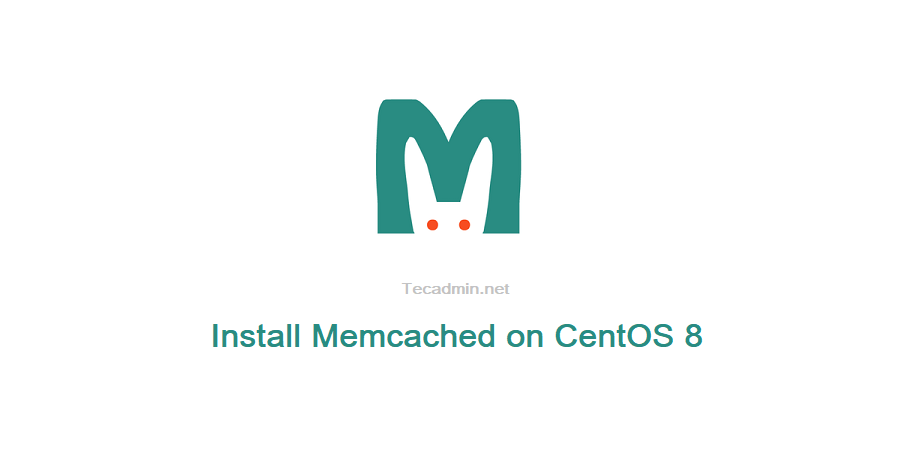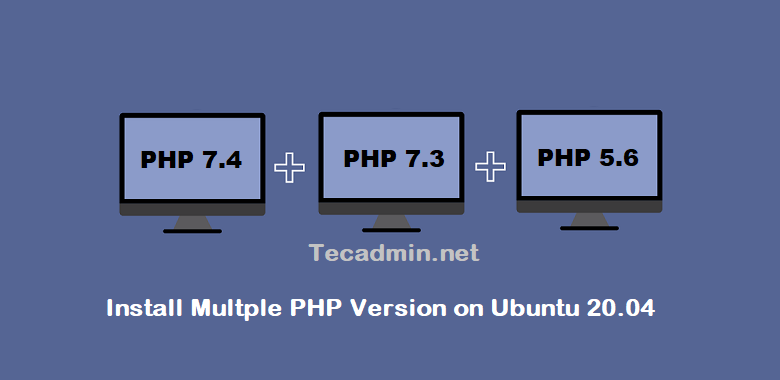AWS Cloudfront is a content delivery network (CDN) service, which delivers data fast and security world wide. It keeps a copy of files to their own server for faster delivery. Sometimes when you apply changes to your application, it not appear on frontend immediately. This is due to Cloudfront serve those files from there own server. It takes some time to read latest files from original servers. To apply changes immediately, you need to clear cache on Amazon Cloudfront. AWS provides an option to create cache invalidation request against your Cloudfront distribution. This tutorial help you to clear cache on…
Author: Rahul
Right file permission is the most crucial part of the Linux system management. A file with permission 777 is open to everyone for read and write. Any user logged in to system can write to this file. Which can be harmful for your system. In some condition’s, you may required 777 permissions like log file etc. But mostly we don’t required it. This tutorial will help you to search files with 777 permission on your Linux/Unix system via find command. Syntax: find /path/to/dir -perm 777 The -perm command line parameter is used with find command to search files based on…
I am configuring my Linux system to accept incoming emails and forward them to needed email accounts. For this setup, the Ubuntu operating system is used with the postfix mail server. We can configure Postfix as mail forwarding server using the virtual_alias_maps settings. This tutorial will help you to set up a postfix server to forward the email to other email accounts. Setup Mail Forwarding in Postfix Forwarding emails to remote mailboxes via Postfix does not require local mailboxes. Any email received by the Postfix will be routed to remote mailboxes based on configuration. Below example configuration will help you…
Django is a Python Web framework that encourages the rapid development of applications. The Django framework is designed for developers to take applications from initial to completion as quickly as possible. It provides higher security for the application and avoids developers from making common security mistakes. This tutorial will help you to install the Django web framework in Ubuntu 20.04 Linux system. It will also help you to create a sample Django application. Let’s go through the tutorial: Step 1 – Installing Python Most of the latest operating systems come with default Python 3 installed. But if your system doesn’t…
Memcached is a distributed memory object caching system which stored data in memory on key-value basis. It is very useful for optimizing dynamic websites and enabled speed by caching objects in memory. Read more about Memcache. This article will help you to install Memcached and PHP Memcache extension on CentOS 8 and RHEL 8 Linux systems. Prerequisites You must have a running CentOS 8 or RHEL 8 Linux system with sudo privileged account access. Step 1 – Install Memcached Server The Memcached rpm packages are available under the default packages repository on CentOS/RHEL 8 systems. First, update the DNF cache…
NVM is a Node Version Manager tool. Using the NVM utility, you can install multiple node.js versions on a single system. You can also choose specific Node version for applications. It also provides an option to auto select Node version using .nvmrc configuration file. This tutorial will help you to install NVM on Ubuntu 18.04 LTS (Bionic) system. Tutorial will also help you to install mutiple node versions on a account on Ubuntu system. Prerequisites A running Ubuntu 18.04 LTS system with shell access Login to system with user to which you need to install Node versions Install NVM on…
Generally, the host manager used a separate server for each PHP version application deployment. Which increases the hosting cost. Some of the host managers are using Docker to run multiple PHP version on the single server. Also, most of you are aware of the configuration, I used in this tutorial. But some of the system administrators are not aware of this. This tutorial will help you to install multiple PHP version with Apache on Ubuntu 20.04 Linux system without switching PHP versions. This tutorial describes the installation and configuration of two VirtualHost on Apache with separate PHP versions. First VirtualHost…
The ionCube loader is the library used to load ionCube encoded files on the server. It is required to installed on the webserver to decode any ionCube encoded files before running. The ionCube provides a feature to encrypt your PHP script to keep them secure. It also keeps them secure from unauthorized uses. This tutorial will help you to configure the ionCube loader with PHP on Ubuntu 20.04 Linux system. Pre-Requisites We assume you already have PHP installed on your Ubuntu system. If not, you can follow these instructions to install required PHP version. Step 1 – Download Ioncube Loader…
PHP is a widely used server-side scripting language that is embedded in HTML. It is used to develop web applications and can be easily integrated with various web servers. In this article, we will discuss the importance of the phpinfo() function, how to create a phpinfo file, and how to access it in your server environment. 1. What is phpinfo()? The phpinfo() function is a built-in function in PHP that outputs information about the PHP configuration on your server. This information is valuable for developers and administrators alike, as it provides insights into the PHP environment, including PHP version, server…
Sysstat is a powerful and flexible tool for monitoring system performance on Linux-based systems. It provides detailed information about various system statistics, including CPU utilization, memory usage, disk I/O, network traffic, and system load. In this article, we will provide a comprehensive guide to getting started with Sysstat on Ubuntu. Sysstat Utilities The sysstat package provides a number of utilities for collecting the system use activities and system performance. iostat – Used for CPU statistics and input/output statistics for the block devices and partitions and generate reports. mpstat – Used for processor related statistics and reports. pidstat – Used for…




